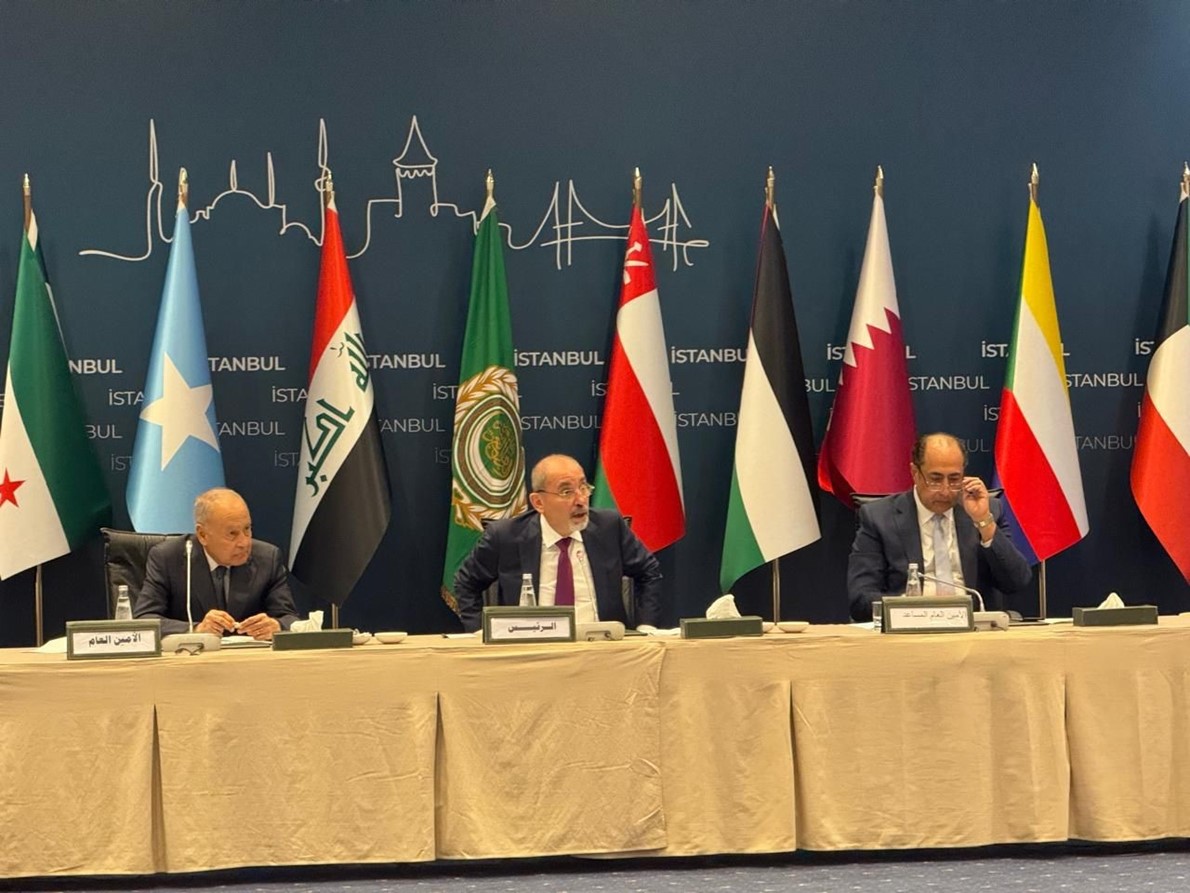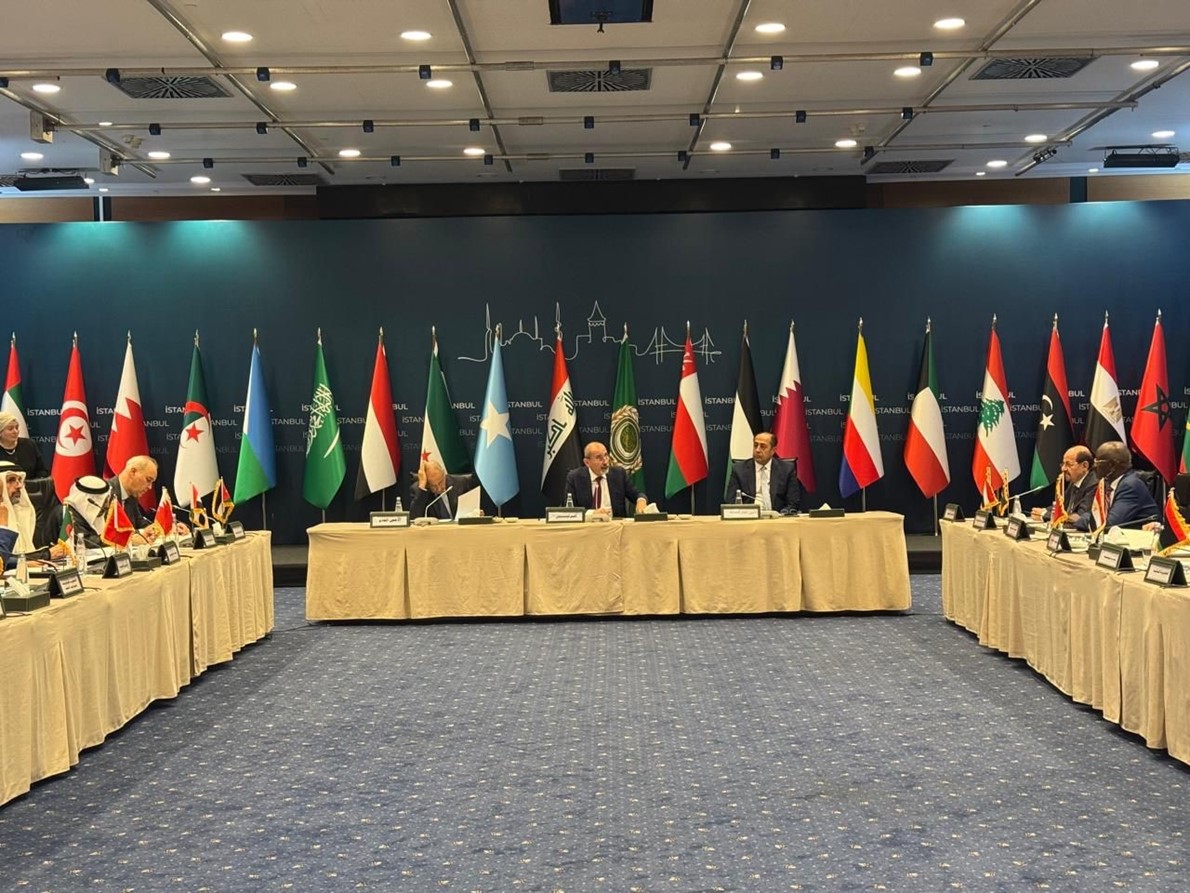Deputy Prime Minister and Minister of Foreign Affairs and Expatriates, Ayman Safadi, chaired on Friday the extraordinary session of the Arab League Council at the ministerial level, held in Istanbul, Turkey. The meeting was convened at the request of the Republic of Iraq to discuss the repercussions of the Israeli aggression against the Islamic Republic of Iran and its impact on the security and stability of the region.
اضافة اعلان
The Arab meeting was held ahead of the 51st session of the Council of Foreign Ministers of the Organization of Islamic Cooperation (OIC), scheduled to take place the following day.
The meeting issued the following statement:
The Council of the League of Arab States, convening in an extraordinary session at the ministerial level in Istanbul on June 20, 2025, on the sidelines of the 51st session of the OIC Foreign Ministers Council, discussed the implications of the Israeli aggression against the Islamic Republic of Iran and its impact on regional security. The session was chaired by the Hashemite Kingdom of Jordan, upon a request from the Republic of Iraq, supported by member states and attended by foreign ministers, heads of delegations, and the Secretary-General of the League.
After listening to the statement by the head of the Iraqi delegation, member states, and the Secretary-General, the Council adopted the following positions and steps:
Condemnation of the Israeli aggression against the Islamic Republic of Iran, deeming it a flagrant violation of the sovereignty of a United Nations member state and a threat to regional peace and security. The Council stressed the need to halt this aggression and intensify regional and international efforts to de-escalate tensions and achieve a comprehensive ceasefire.
Call for a return to negotiations to reach an agreement on the Iranian nuclear file and support for all efforts aimed at achieving de-escalation.
Urging the international community, particularly the UN Security Council, to assume its responsibilities in halting Israeli aggression, which constitutes a clear breach of international law and a threat to regional stability.
Affirmation that diplomacy and dialogue are the only viable solutions to the region's crises, in accordance with international law and the UN Charter, emphasizing that the current crisis cannot be resolved by military means.
Reaffirmation that comprehensive de-escalation in the region requires addressing all root causes of conflict and tension, starting with halting Israeli aggression on Gaza and allowing immediate, adequate, and sustainable humanitarian aid through relevant UN agencies. It also requires stopping illegal Israeli practices in the occupied West Bank that undermine the two-state solution and prospects for just and comprehensive peace.
Warning that Israel’s actions are pushing the region toward further conflict and instability, calling for an active and impactful international response to halt Israel’s aggressive policies and work toward a just and comprehensive peace that ensures security for all. This must be achieved by implementing relevant international resolutions and the 2002 Arab Peace Initiative. In this context, the Council welcomed the upcoming High-Level International Conference on the Peaceful Settlement of the Palestinian Issue and the Implementation of the Two-State Solution at the UN General Assembly in New York, jointly chaired by the Kingdom of Saudi Arabia and the French Republic. All UN member states are urged to participate actively once the new date is announced.
The Council also welcomed Egypt’s intention to host a high-level international conference to support early recovery and the reconstruction of Gaza, and to implement the relevant Arab-Islamic plan at the earliest opportunity after a ceasefire is achieved.
Stressing the need to respect freedom of navigation in international waterways, in accordance with international law, to avoid repercussions on the global economy and energy supply lines.
Reaffirming the principles of the UN Charter, which prohibit the use or threat of force in international relations, calling for the peaceful resolution of disputes, respect for the territorial integrity and sovereignty of states, and the rejection of any attempts to destabilize regional security.
Demanding respect for the sovereignty of states in the region and condemning any violation of their airspace by any party.
Emphasizing the need to refrain from targeting nuclear facilities under the safeguards of the International Atomic Energy Agency (IAEA), in accordance with relevant IAEA and Security Council resolutions. The Council warned against the dangers of nuclear emissions and leaks in the region and their catastrophic humanitarian and environmental consequences.
Reiterating the importance of establishing a nuclear-weapon-free zone and a WMD-free zone in the Middle East, in line with international resolutions and the outcomes of previous Arab summits, most recently the 34th Arab Summit held in Baghdad in May 2025. The Council stressed the need for all regional countries to join the Nuclear Non-Proliferation Treaty.


— (Petra)



